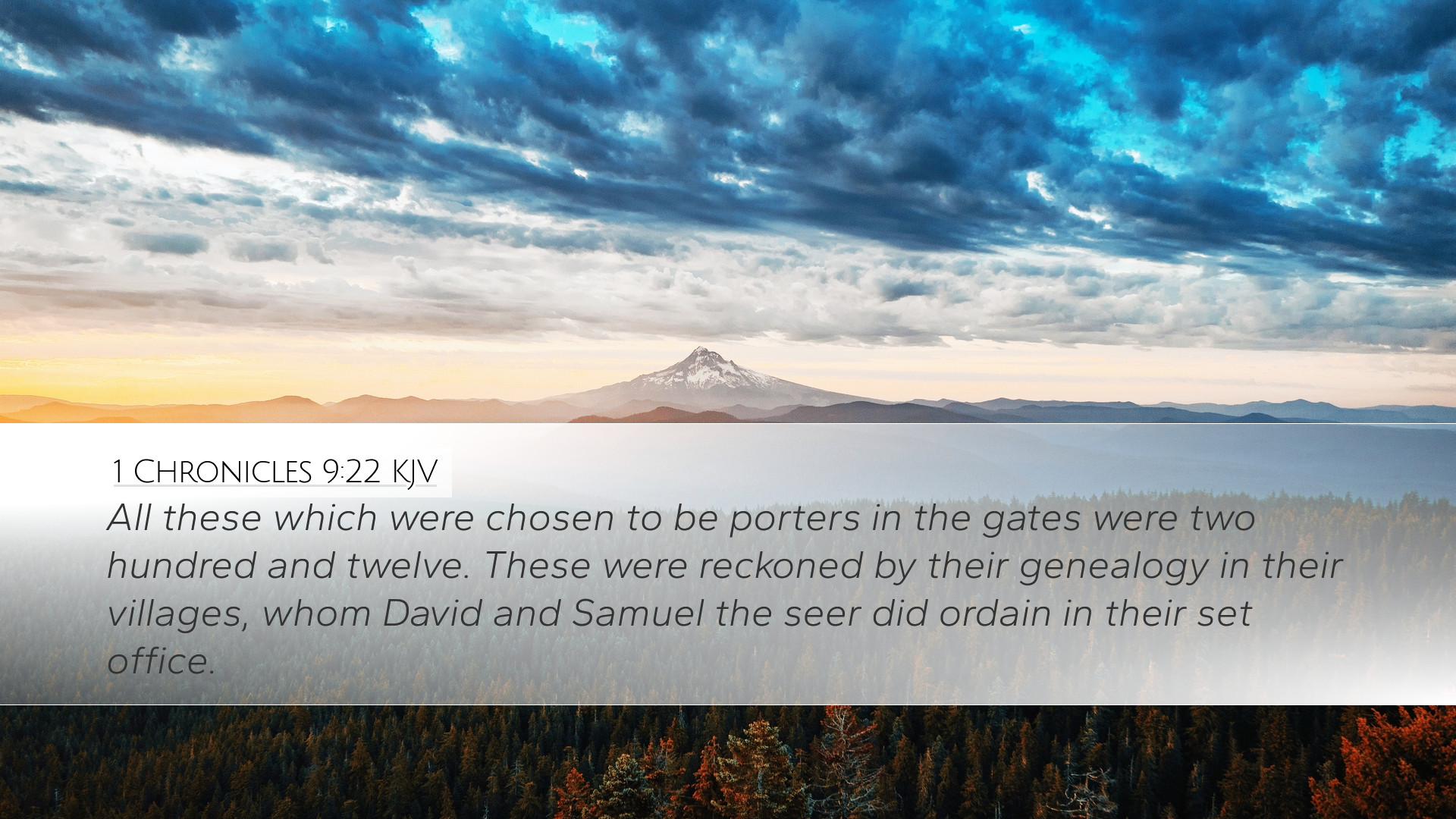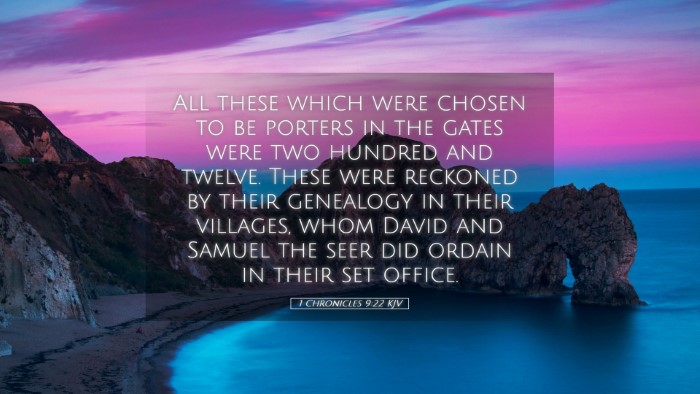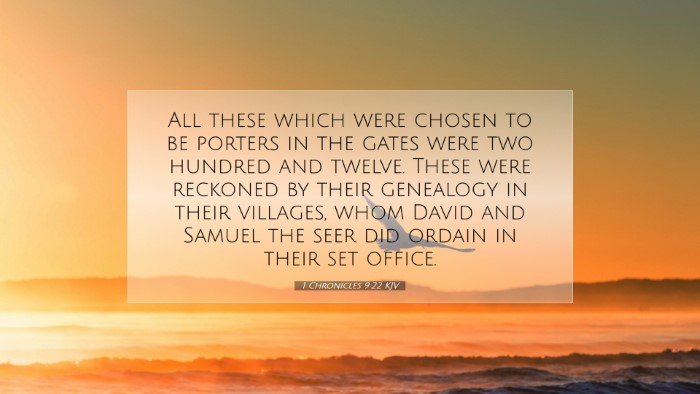Commentary on 1 Chronicles 9:22
Verse Overview:
1 Chronicles 9:22 states, "All those who were chosen as gatekeepers at the thresholds were 212. They were registered by genealogy in their villages. David and Samuel the seer established them in their office of trust." This verse is pivotal in understanding the organization of worship, service, and the heritage of the gatekeepers in the post-exilic community.
Historical Context
In the context of 1 Chronicles, the focus is on the restoration of worship and the establishment of order within the Israelite community after the Babylonian exile. The genealogy and roles of various groups, including the gatekeepers, highlight the continuity of worship practices and the importance of roles instituted by David and recognized by Samuel.
Gatekeepers' Significance
Matthew Henry's Commentary Insights:
- Henry emphasizes the role of the gatekeepers as a symbol of order in worship. He notes that the gatekeepers served a vital purpose in maintaining the sanctity and accessibility of the temple, providing a necessary boundary between the sacred and the profane.
- He draws attention to the fact that the number of gatekeepers—212—implies a structured approach to temple service, outlining a community effort towards preserving the worship of God. Through their genealogical registration, the gatekeepers were linked to their ancestral heritage, reinforcing the idea that they were appointed to their roles by divine mandate.
Genealogical Importance
Albert Barnes' Commentary Insights:
- Barnes highlights the significance of genealogy in the Old Testament, particularly in Chronicles, which seeks to establish legitimacy and continuity. The meticulous recording of names and lineage served a dual purpose: affirming one's heritage and illustrating God’s faithfulness in maintaining His covenant people.
- He further mentions how the gatekeepers' roles, assigned by David and confirmed by Samuel the seer, point to an established order that reflects God's instructions for worship. Barnes underscores the importance of recognizing authority and structure within the community to ensure proper worship practices were upheld.
Divine Order and Worship
Adam Clarke's Commentary Insights:
- Clarke discusses the spiritual implications of the gatekeeper's role, suggesting that it represents a spiritual guarding of the worship life of the community. He suggests that those who serve in positions of ministry are called to protect the holiness of the temple and the sanctity of the worship experience.
- He also mentions the connection between the number of gatekeepers and the broader Israelite population, suggesting a divine orchestration of service and responsibilities that reflect a balanced and representative community coming together to honor God.
Theological Reflection
This verse speaks to contemporary issues of church governance and the spiritual responsibilities within the body of Christ. The role of gatekeepers reminds us of the necessity of order within the church. Theologically, this expands to include how each believer is called to be a guardian of their spiritual integrity and that of their community.
Conclusion
In summary, 1 Chronicles 9:22 serves as a reminder of the importance of proper order in worship, the significance of genealogy in spiritual leadership, and the divine establishment of roles that contribute to the overall health of the community of faith. The insights from Matthew Henry, Albert Barnes, and Adam Clarke deepen our understanding of this verse and embody principles that are applicable to modern ministry contexts.


